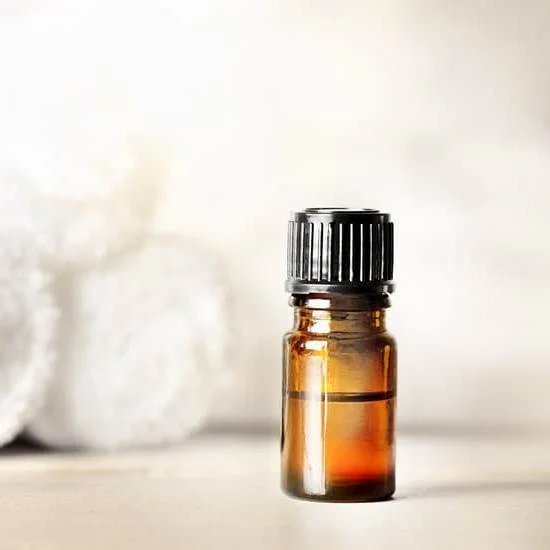When it comes to incorporating essential oils into your daily routine, one of the most common questions is, “how long will essential oil aromatherapy take effect?” Essential oil aromatherapy has been gaining popularity as a natural way to improve health and well-being. In this article, we will delve into the concept of essential oil aromatherapy and explore the factors that determine how long it takes for the effects to be felt.
Essential oil aromatherapy involves using aromatic plant extracts to promote physical and psychological well-being. The science behind essential oil aromatherapy lies in the interaction between the olfactory system and the limbic system of the brain. When inhaled, the molecules of the essential oils stimulate these systems, leading to various physiological and emotional responses.
Choosing the right essential oils for aromatherapy is crucial for achieving desired effects. Each essential oil has its unique properties and benefits. Factors such as quality, purity, and individual preferences play a key role in determining how long it will take for essential oil aromatherapy to show its effects. Understanding these factors is vital in maximizing the benefits of aromatherapy.
The Science Behind Essential Oil Aromatherapy
Essential oils have been used for centuries for their therapeutic and medicinal properties. Aromatherapy, the practice of using essential oils for their aromatic and healing benefits, has gained popularity in recent years. But how long will essential oil aromatherapy take effect? The answer to this question depends on several factors.
Firstly, the method of application plays a significant role in how quickly essential oil aromatherapy will take effect. Inhalation through diffusers or direct inhalation can provide almost immediate results, as the aromatic compounds are quickly absorbed into the bloodstream through the lungs. On the other hand, topical application through massage or baths may take longer to show noticeable effects as the oils are absorbed through the skin and enter the bloodstream at a slower rate.
Another factor to consider is the quality of the essential oils being used. High-quality, pure essential oils extracted from plants grown without pesticides or chemicals will have a more potent and effective impact than lower-quality synthetic oils. Additionally, each individual’s body chemistry and personal health conditions can also affect how long it takes for essential oil aromatherapy to produce results.
It’s important to remember that essential oil aromatherapy is not a one-size-fits-all solution and its effectiveness can vary from person to person. Just like any form of natural medicine, consistency and patience are key when incorporating it into your daily routine. By understanding these factors, individuals can better gauge how long it will take for essential oil aromatherapy to work for them personally.
Choosing the Right Essential Oils for Aromatherapy
When choosing the right essential oils for aromatherapy, it is important to consider the specific effects and benefits of each oil. Different essential oils have different properties that can address various physical and emotional concerns.
For example, lavender essential oil is known for its calming and relaxation properties, while peppermint essential oil is often used for its invigorating and energizing effects. It’s essential to understand your own needs and desired outcomes when selecting which essential oils to use in your aromatherapy practice.
Another factor to consider when choosing essential oils for aromatherapy is the quality of the oil. Look for pure, high-quality essential oils from reputable sources to ensure that you are getting the full therapeutic benefits of the oil. Cheaper, lower-quality oils may not be as effective and could potentially contain harmful additives or chemicals.
Additionally, it’s important to take into account any allergies or sensitivities you may have when selecting essential oils for aromatherapy. Some people may have adverse reactions to certain oils, so it’s crucial to do a patch test before using a new essential oil topically or in a diffuser. If you are pregnant, nursing, or have a medical condition, it’s advisable to consult with a healthcare professional before using essential oils for aromatherapy.
The Benefits of Essential Oil Aromatherapy
Essential oil aromatherapy is a popular practice that has been used for centuries to improve overall health and well-being. The use of essential oils in aromatherapy can provide a wide range of benefits, impacting both physical and emotional aspects of health. Here are some of the key benefits of essential oil aromatherapy:
- Stress relief: Certain essential oils, such as lavender and chamomile, have been shown to help reduce stress and anxiety when used in aromatherapy. Aromatherapy can be a great way to relax and unwind after a long day.
- Improved sleep quality: Essential oils like cedarwood and bergamot have properties that can promote relaxation and improve sleep quality. Diffusing these oils in the bedroom before bedtime can create a calming atmosphere that helps with falling asleep more easily.
- Mood enhancement: Aromatherapy using citrus essential oils like lemon and orange can help uplift mood and combat feelings of depression or low energy. These oils are often used to create a refreshing and energizing environment.
In addition to these benefits, essential oil aromatherapy is also known for its potential to alleviate certain physical ailments such as headaches, migraines, and inflammation. The use of specific essential oils like peppermint or eucalyptus has been shown to have analgesic and anti-inflammatory effects when inhaled through aromatherapy.
Overall, incorporating essential oil aromatherapy into your daily routine can lead to improved overall health and well-being by targeting both physical and emotional aspects.
While the specific duration for essential oil aromatherapy to take effect may vary depending on the individual, there are several factors that can influence how long it takes for the benefits to be experienced:
- The type of essential oil being used: Some essential oils may have more immediate effects, while others may require longer exposure for their benefits to be felt.
- The method of application: Whether using a diffuser, applying topically, or using in a bath, the method of administering the essential oil can impact how quickly it takes effect.
It’s important to understand that while some people may experience immediate effects from essential oil aromatherapy, others may require consistent use over time before noticing significant improvements in their health and well-being. By being mindful of these factors and exploring different essential oils and methods of application, individuals can better determine how long it will take for them to experience the full benefits of essential oil aromatherapy.
The Different Methods of Using Essential Oils for Aromatherapy
When it comes to incorporating essential oils into your daily routine for aromatherapy, there are several methods you can choose from. Each method has its own unique benefits and can be tailored to fit your individual needs and preferences. From using diffusers to enjoying a relaxing bath or receiving a soothing massage, the possibilities for utilizing essential oils are endless.
Diffusers
Using a diffuser is one of the most popular methods for enjoying the benefits of essential oil aromatherapy. Whether it’s a traditional water-based diffuser or a modern ultrasonic diffuser, these devices work by dispersing tiny oil droplets into the air, allowing you to inhale the aroma and experience its therapeutic effects. Diffusers provide a convenient and consistent way to enjoy the benefits of essential oils throughout the day.
Bath
Adding essential oils to your bath is another effective method for experiencing their aromatic benefits. By simply adding a few drops of your chosen oil to your bathwater, you can create a spa-like atmosphere and unwind after a long day. The warm water helps to release the aroma of the oil, creating a relaxing and soothing experience while also allowing your skin to absorb the benefits of the oil.
Massage
Receiving a massage with essential oils is an excellent way to combine both physical touch and aromatherapy for maximum relaxation and rejuvenation. A skilled massage therapist can blend essential oils into carrier oils before applying them directly to your skin during a massage session. This allows for both inhalation and topical absorption of the beneficial properties of the oils, providing holistic support for both body and mind.
By understanding these different methods of using essential oils for aromatherapy, you can choose the approach that best suits your lifestyle and preferences. Whether you prefer the convenience of diffusers, the indulgence of an aromatic bath, or the therapeutic touch of an essential oil massage, incorporating these methods into your routine can lead to improved health and well-being over time.
How Long Will Essential Oil Aromatherapy Take Effect
When it comes to essential oil aromatherapy, one of the most common questions people have is how long it will take for the effects to kick in. The truth is, the time it takes for essential oil aromatherapy to take effect can vary depending on several factors. These factors include the method of application, the type of essential oil used, and individual differences in response to aromatherapy.
First and foremost, the method of application plays a crucial role in determining how long it will take for essential oil aromatherapy to work. For example, using a diffuser to disperse the aroma throughout a room can lead to a quicker onset of effects compared to applying the essential oils diluted in a carrier oil during a massage.
Additionally, taking a relaxing bath with essential oils can provide a more gradual but longer-lasting effect due to the prolonged exposure to the aromatic compounds.
Another important factor to consider is the type of essential oil being used. Some oils have fast-acting properties that can produce almost immediate effects, while others may take longer to manifest their benefits. For instance, peppermint and eucalyptus essential oils are known for their invigorating and refreshing properties that can produce quick results when used in aromatherapy.
Individual differences also play a significant role in determining how long it will take for essential oil aromatherapy to take effect. Factors such as age, overall health, sensitivity to smell, and previous experience with aromatherapy can all influence how quickly someone responds to the inhalation or topical application of essential oils. In some cases, consistent use over time may be needed before noticeable improvements in well-being are experienced.
In summary, there is no one-size-fits-all answer to how long it will take for essential oil aromatherapy to work. The time it takes for the effects to manifest depends on various factors including the method of application, the type of essential oil used, and individual differences in response. By understanding these factors and experimenting with different approaches, individuals can optimize their experience with essential oil aromatherapy for improved health and well-being over time.
Tips for Maximizing the Effects of Essential Oil Aromatherapy
When using essential oil aromatherapy, it’s important to consider how long it will take for the effects to kick in and how to maximize those effects. The time it takes for essential oil aromatherapy to take effect can vary depending on several factors, including the method of application, the type of essential oil used, and individual differences in response.
One factor to consider is the method of application. Inhalation through a diffuser or directly from the bottle is one of the quickest ways to experience the benefits of essential oil aromatherapy, as the aroma can be quickly absorbed into the bloodstream through the respiratory system. On the other hand, applying essential oils topically through massage or adding them to a bath may take longer to take effect as they need time to be absorbed through the skin.
Another important factor is the type of essential oil being used. Some essential oils have more potent and immediate effects than others. For example, peppermint and eucalyptus are known for their quick-acting properties in relieving headaches and congestion, while lavender and chamomile are popular for their calming and relaxation effects but may take longer to show noticeable results.
In addition to these factors, individual differences in response can also impact how long it will take for essential oil aromatherapy to take effect. Factors such as age, overall health, and sensitivity to scents can all influence how quickly a person experiences the benefits of using essential oils for aromatherapy.
| Factor | Impact |
|---|---|
| Method of Application | Varying timeframe for absorption |
| Type of Essential Oil | Different potency levels and effects |
| Individual Differences | Age, health, and scent sensitivity differences |
Safety Precautions and Potential Risks of Using Essential Oils for Aromatherapy
Potential Risks of Using Essential Oils
While essential oils can offer numerous benefits, it’s important to be aware of potential risks associated with their use. Essential oils are highly concentrated plant extracts, which means that they can be potent and may cause adverse reactions in some individuals.
Skin irritation, allergic reactions, and respiratory problems are among the potential risks associated with using essential oils for aromatherapy. It’s important to always perform a patch test before using a new essential oil and to dilute them properly to avoid skin irritation.
Safety Precautions for Using Essential Oils
To ensure the safe use of essential oils for aromatherapy, it’s crucial to follow certain safety precautions. First and foremost, essential oils should never be ingested unless under the guidance of a qualified healthcare professional. When applying essential oils topically, always dilute them with a carrier oil to reduce the risk of skin irritation. Additionally, pregnant women, young children, and individuals with certain medical conditions should consult with a healthcare provider before using essential oils for aromatherapy.
Proper Storage and Handling of Essential Oils
In order to minimize the risks associated with using essential oils for aromatherapy, it’s important to store and handle them properly. Essential oils should be kept in dark-colored glass bottles in a cool, dark place to prevent degradation from light and heat.
It’s also important to keep them out of reach of children and pets to avoid accidental ingestion or exposure. By taking these safety precautions and understanding the potential risks, individuals can safely enjoy the benefits of essential oil aromatherapy without compromising their health and well-being.
Conclusion
In conclusion, the use of essential oil aromatherapy can have long-term benefits for your overall health and well-being. By understanding the science behind this practice and choosing the right essential oils, you can experience improvements in your mental, emotional, and physical health. It is important to remember that the effectiveness of essential oil aromatherapy can vary based on factors such as the quality of the oils, individual response to different scents, and the method of application.
When incorporating essential oil aromatherapy into your daily routine, it is crucial to be patient and consistent. The effects of aromatherapy may not always be immediate, and it may take some time before you notice significant changes in your well-being. However, by using essential oils regularly and exploring different methods of application such as diffusers, baths, and massages, you can maximize its benefits over time.
Overall, essential oil aromatherapy offers a natural and holistic approach to improving your health. With proper knowledge of safety precautions and potential risks, you can enjoy the long-term benefits of incorporating essential oils into your daily life. Whether you are looking to reduce stress, improve sleep quality, or enhance concentration, essential oil aromatherapy has the potential to positively impact various aspects of your well-being with consistent use over time.
Frequently Asked Questions
How Long Does Aromatherapy Oil Last?
The lifespan of aromatherapy oils can vary depending on factors such as storage, quality, and the specific oil. Generally, pure essential oils can last for several years if stored properly in a cool, dark place.
What Is the Lifespan of Aromatherapy?
Aromatherapy itself does not have a specific lifespan, as it is a practice rather than a physical object with a set expiration date. As long as the essential oils used in aromatherapy are still potent and have not deteriorated, the practice can continue indefinitely.
How Long Does It Take for Essential Oils to Wear Off?
The duration for which essential oils remain effective varies from oil to oil and depends on factors like method of application, concentration, and individual body chemistry. Some essential oils may wear off within an hour or two, while others may linger for several hours.

Are you looking for a natural way to improve your health and wellbeing?
If so, aromatherapy may be the answer for you.





